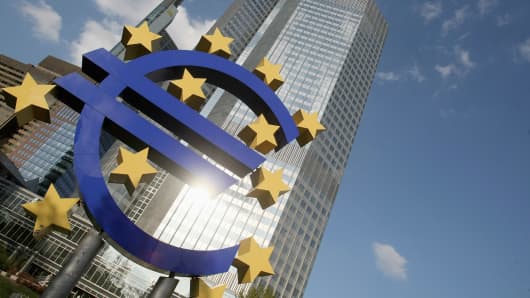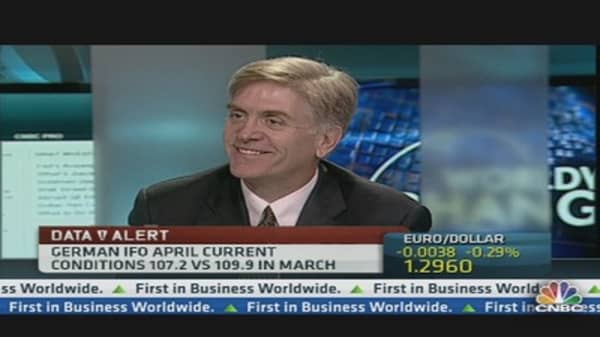The FTSEurofirst 300 Index extended gains on Wednesday after rallying 2.4 percent on Tuesday on hopes of a rate cut. A fall in Spanish and Italian borrowing costs and signs that Italy was nearer to breaking its political impasse also helped boost sentiment.
"The prospect of more central bank easing is fueling risk appetite with a vengeance. For now, the trend is your friend. The moment of truth will be when the ECB has to step up and deliver, Thursday week. It'll be far harder to sustain the current exuberance over that," economists Ciaran O'Hagan, Wee-Khoon Chong and Marc-Henri Thoumin from Societe Generale said in a note on Wednesday.
Daiwa economists Tobias Blattner and Emily Nicol warned on Tuesday that with "ECB expectations high, scope for disappointment [was] large."
"But while we expect the ECB to cut the main refinancing rate next week, recent comments by Governing Council members suggest that they will not announce further non-standard measures before June, if at all. This suggests that, given the limited impact of a further 25bps cut and the ECB's view that it has only limited room for maneuver to ease the euro, has increased in recent days in our view," they added.
(Read More: Europe's Austerity Era Could Be Coming to an End)
Analysts from UBS agreed on Tuesday. "Our previous call was for rates to stay on hold in 2013/14, but we believe that the recent economic data (including today's PMIs) were so weak that they will prompt the ECB to cut rates," analysts Reinhard Cluse, Amit Kara and Martin Lueck said in a note.
"[However] we believe that the impact of lower rates on economic activity will be limited. Arguably, the biggest problem in the euro zone is the lack of credit from banks to the SME's and this will not be fixed through lower policy rates. Non-standard measures…could help, but will take time."
"Much more game-changing initiatives, such as quantitative easing (QE), are not an option, in our view," they added.
One of the top economic advisers to German Chancellor Angela Merkel also told CNBC that the ECB should refrain from a rate cut. "If you ask me if the ECB should cut rates, I would say no, because it has a very easy monetary policy with ample liquidity supply and also emergency liquidity assistance," Volker Wieland, a professor at the Goethe University told CNBC on Tuesday.
(Read More: ECB Should Not Cut Rates: Top German Adviser)
-By CNBC's holly Ellyatt, follow her on Twitter @HollyEllyatt





